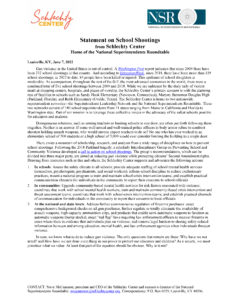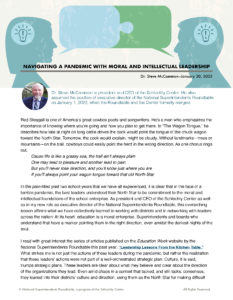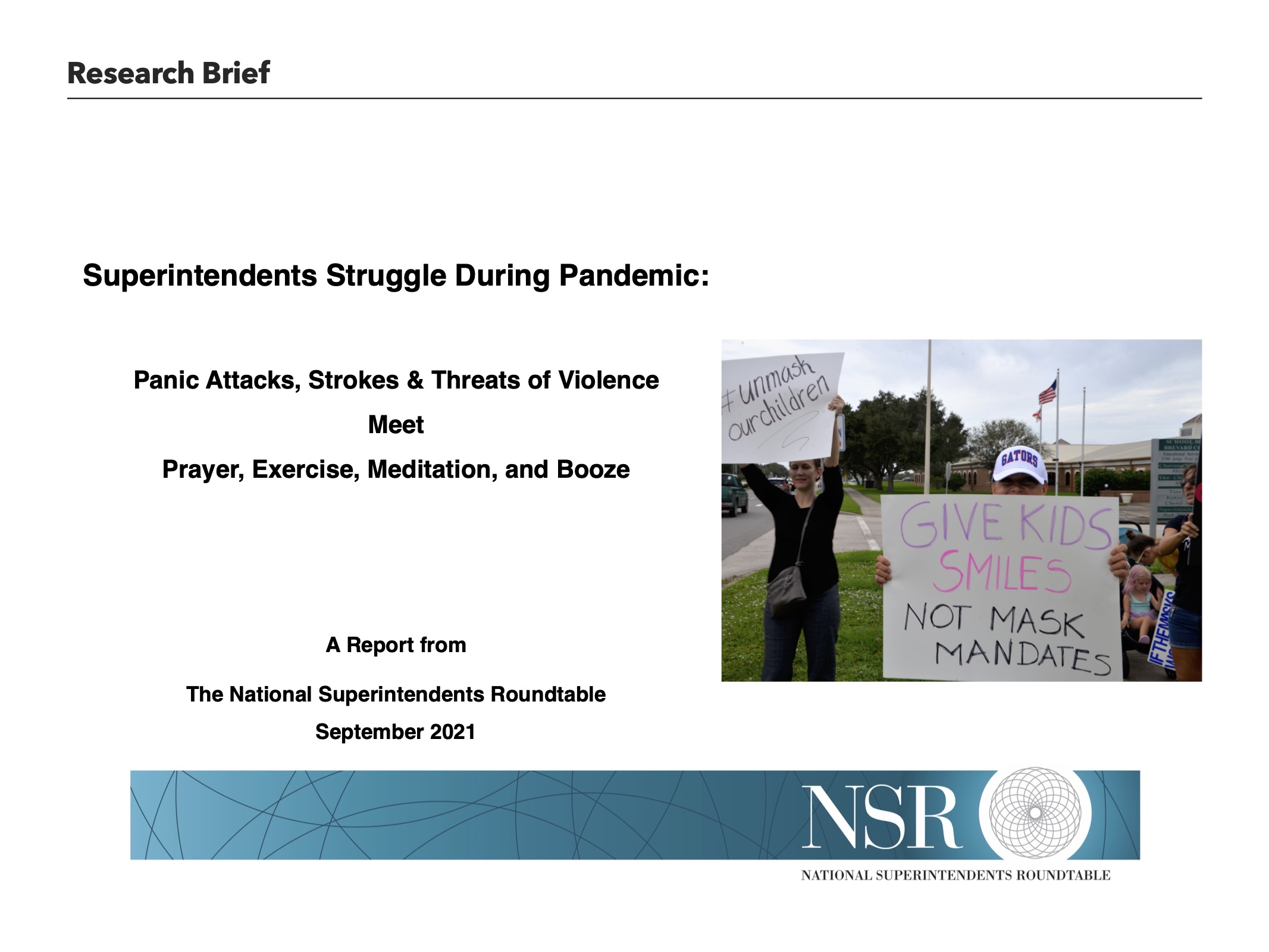
A new survey by the National Superintendents Roundtable confirms that many school superintendents encountered so much over-the-top rage amidst the COVID-19 pandemic that they wrestled with whether to continue in their jobs.
Responses from 400 district leaders over the summer shed light on the intense pressure school leaders are experiencing amidst the pandemic.
Respondents described abusive online behavior and physical threats, plus the whiplash of navigating ever-changing state and local policies. The pandemic was coldly politicized, superintendents say, and their workload became outsized as they pivoted to virtual school and introduced safety measures to protect children.
“School superintendents are resilient. They turned on a dime to meet the needs of their students during COVID-19. But the highly charged atmosphere around schools has been destructive to our schools and our nation during a time of crisis,” says James Harvey, executive director of the Roundtable.
Other findings:
- Nearly two-thirds (63 percent) of respondents said they considered quitting during the 2020-2021 school year. One said he considered quitting three times.
- 83 percent stayed in their current position, while 10 percent reported retiring. Their reasons for staying included dedication to the work; unwillingness to abandon their students, communities and staff during a crisis; a hope the next school year would be better; and protection of their retirement and insurance benefits.
- Superintendents weren’t overly concerned about principals leaving their jobs, except in small rural districts. They did predict more teacher turnover for the 2021-2022 school year, however. Wrote one superintendent: “I expect to replace 85% of our teachers this year.”
A no-win situation
Superintendents expressed anger and disgust at the no-win situation they were placed in as school openings, vaccinations, and masking were politicized during the pandemic. Parents and community members behaved outrageously on social media and at school board meetings, according to respondents.
Criticism of superintendents comes with the job, but the threats felt unprecedented. One respondent stated, “About two months ago, an unhinged extremist followed me home from a board meeting and threatened me…My doctor has diagnosed me with PTSD.”
Superintendents of color and female superintendents faced particularly “vile” racist and misogynistic verbal assaults, the report says. A Black superintendent reported needing police protection and feeling compelled to move his family to a more secure building. A woman reported that her office was vandalized while she was called “everything from a ‘f-ing idiot’ to a ‘know-it-all c-word.’”
Coping mechanisms
Superintendents reported coping in both productive and destructive ways. Several developed health conditions that included strokes, high blood pressure, panic attacks, and trouble sleeping. Many said they self-medicated with sleeping pills or alcohol. One superintendent wrote: “Honestly I started drinking more beer. It is sad. The worst year in education in my 25 years.”
On a better note, other superintendents reported relying on prayer and meditation, family, hobbies, exercise, and their peers to bolster their wellness. “I pray for the students in my district every day,” wrote one respondent.
Concern about the profession
Superintendents noted the superintendency has changed. Wrote one: “It will be harder and harder to find quality candidates to fill superintendents’ positions. The political landscape has made the job increasingly difficult.” The report ended by applauding the resilience of educators and warned politicians who “callously played politics” with the pandemic not to blame them for the economic repercussions of school closings.





